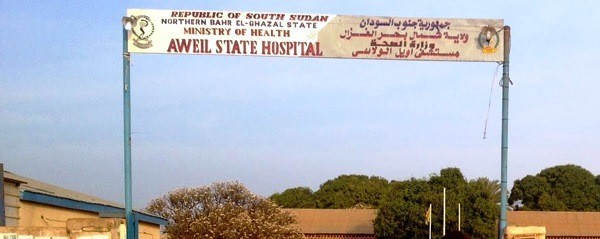Slightly more than 40 fistula sufferers were treated during a fistula campaign in South Sudan’s Aweil State last week.
The campaign which started on 21st September and ended on 2nd October drew patients from across South Sudan and Sudan for the free fistula screening and treatment services. It was organized by the country’s health ministry with support from its partners like UNFPA, UNICEF, MSF, and ALIMA.
At the closing ceremony last Thursday, the director of Aweil State Hospital Reec Mathok Diing told Radio Tamazuj that 41 women were treated successfully.
He said those who did not undergo the surgery in Aweil, will be given priority in the next treatment campaigns in Wau.
“There are 12 patients who were not treated because the medical team targeted 35 operations. But we asked them to do six more and we are grateful that they managed to. However, the 12 are lucky because they will be operated in the upcoming fistula campaign in Wau in December,” he said.
Some of the women who went through the operation shared their joy.
“I am happy because of the operation, I am now well. I came from far and I am glad it was successful. I had slight pain when urinating but it is gone now. My coming to Aweil was successful. I want to thank the person who brought me here and those who received me here,” said Adut Yak, a woman in her twenties.
“They have advised us that we should stay at least 3 years before we engage in sexual intercourse after the operation so that we do not go back to the condition. Both women and men have discriminated against us saying we smell urine. They laugh at us. I want to ask our husbands to wait until after one year and then consult the doctor before intercourse. I am very grateful,” said Hanuna Issa Rajab a young lady from Nuba Mountains.
Obstetric fistula is a debilitating pregnancy-related condition caused by prolonged obstructed labor and leaves women constantly leaking urine or feces, or both. It is treatable and preventable.




